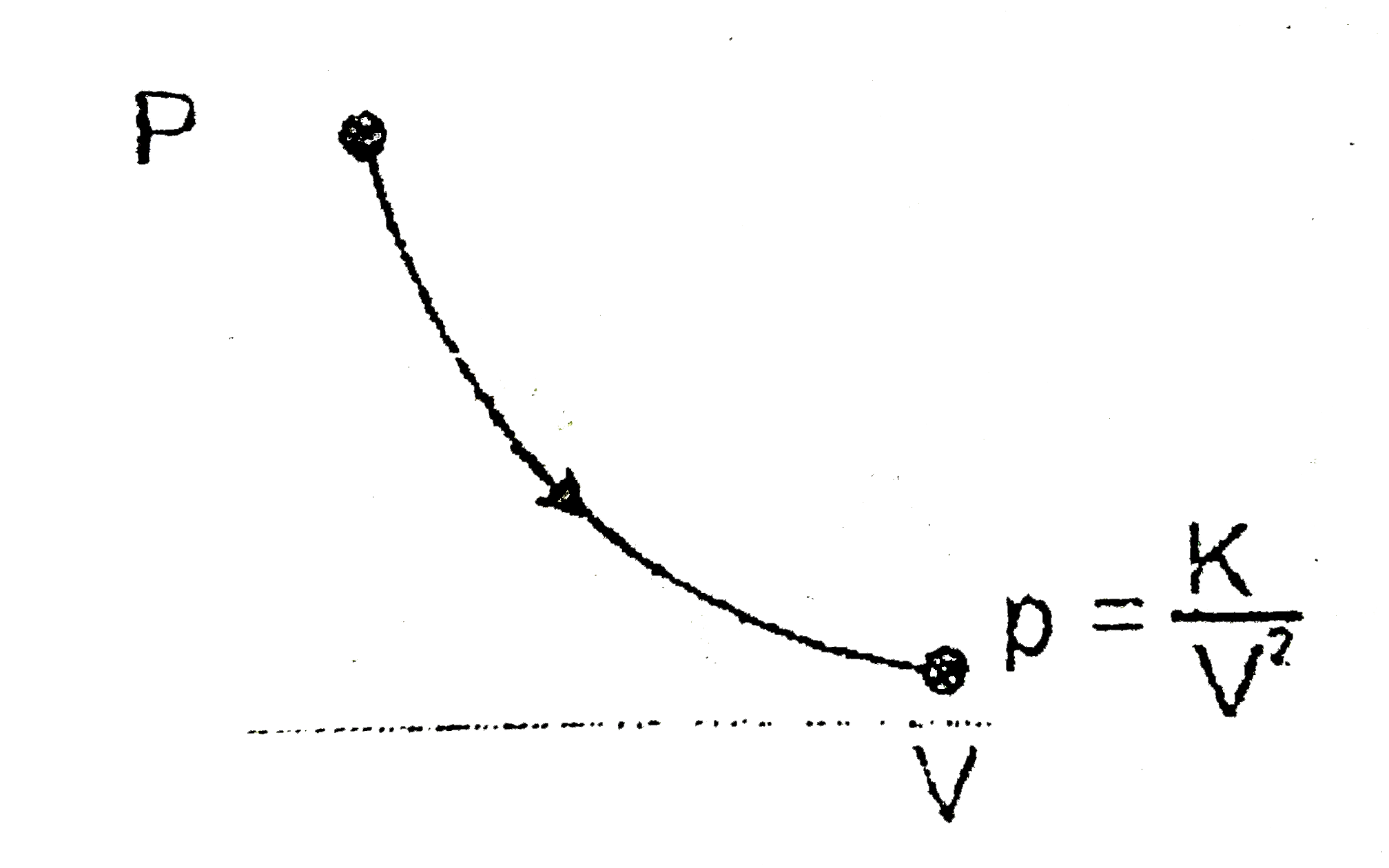If ideal diatomic gas follows the process, as shown in graph, where T is temperature in kelvin and V is volume (m3), then molar heat capacity for this process will be [in terms of gas constant R]:
![If ideal diatomic gas follows the process, as shown in graph, where T is temperature in kelvin and V is volume (m^(3)), then molar heat capacity for this process will be [in terms of gas constant R]:](https://d10lpgp6xz60nq.cloudfront.net/physics_images/RES_HAT_PHY_XI_C01_E01_183_Q01.png)
7R2
5R
19R6
11R2
The correct Answer is:C
C=Cv+R1−η……..(i)
T2V−3= constant ,PV=nRT
P2V2V−3= constat ,P2V−1= constant
PV−1/2= constant
N=−1/2
C=5R2+2R3=19R6
Topper's Solved these Questions
- BOOK - RESONANCE ENGLISHCHAPTER - KTG & THERMODYNAMICSEXERCISE - PART -III25videos
KTG & THERMODYNAMICS
- BOOK - RESONANCE ENGLISHCHAPTER - KTG & THERMODYNAMICSEXERCISE - PART -IV9videos
KTG & THERMODYNAMICS
- BOOK - RESONANCE ENGLISHCHAPTER - KTG & THERMODYNAMICSEXERCISE - Exercise-21videos
KTG & THERMODYNAMICS
- BOOK - RESONANCE ENGLISHCHAPTER - KINETIC THEORY OF GASES AND THERMODYNAMICSEXERCISE - Exercise64videos
KINETIC THEORY OF GASES AND THERMODYNAMICS
- BOOK - RESONANCE ENGLISHCHAPTER - MAGNETIC FIELD AND FORCESEXERCISE - Exercise64videos
MAGNETIC FIELD AND FORCES
Similar Questions
The molar heat capacity for a gas at constant T and P is
View SolutionThe pressure P of an ideal diatomic gas varies with its absolute temperature T as shown in figure . The molar heat capacity of gas during this process is [R is gas constant]
 View Solution
View SolutionThe molar heat capacity for the process shown in fig. is
 View Solution
View SolutionFind the value of molar heat capacity for an ideal gas in an adiabatic process.
View SolutionP-V diagram of a diatomic gas is a straight line passing through origin. The molar heat capacity of the gas in the process will be
View SolutionP-V diagram of a diatomic gas is a straight line passing through origin. The molar heat capacity of the gas in the process will be
View SolutionAn ideal gas with adiabatic exponent γ=43 undergoes a process in which internal energy is related to volume as U=V2 . Then molar heat capacity of the gas for the process is :
View SolutionAn amount of heat is added to a monatomic ideal gas in a process in which the gas performs work Q2 on its surrounding. Find the molar heat capacity for the process.
View SolutionIn a thermodynamic process on an ideal diatomic gas, work done by the gas is η times the heat supplied (η<1). The molar heat capacity of the gas for the process is
View SolutionFor a certain process, pressure of diatomic gas varies according to the relation P=aV2, where a is constant. What is the molar heat capacity of the gas for this process ?
View Solution

